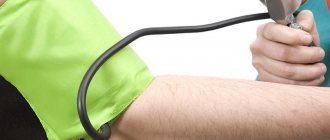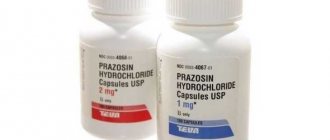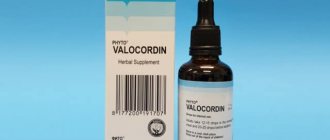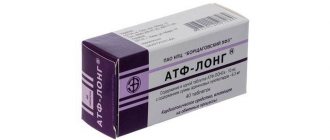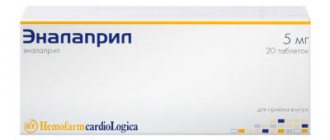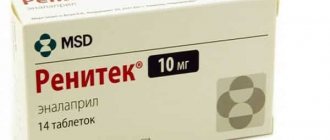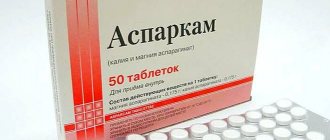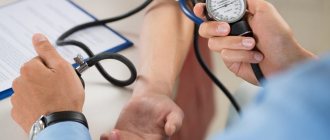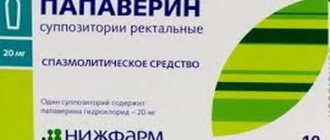Composition, properties and indications for use
The drug is available in the form of powder and tablets. The active ingredient is phenibut hydrochloride or aminophenylbutyric acid (0.25 g in each tablet and 1 g in powder). The composition also contains the following additional components:
- milk sugar;
- plasdon K-25;
- calcium salt and stearic acid;
- potato starch.
In some cases, Phenibut is used to treat and eliminate various manifestations of vegetative-vascular dystonia, alcohol and drug addiction. The above remedy is used for stuttering, involuntary muscle contractions and urinary incontinence in children of primary school age.
When treating children, the dosage and number of uses per day are determined by the attending physician.
Experts recommend the use of this drug for asthenia, various sleep disorders (including the presence of frequent nightmares) in elderly patients, to eliminate anxiety before an upcoming surgical operation or a painful diagnosis.
Phenibut is used for diseases of the inner ear, which is characterized by attacks of dizziness, as well as for disruption of the vestibular apparatus and mild manifestations of motion sickness. The drug is prescribed to reduce the manifestation of alcohol and drug withdrawal syndrome. In some cases, experts recommend Phenibut to normalize high intraocular pressure.
The above pharmaceutical agent improves metabolic processes in the patient’s body and stimulates brain function, has a tranquilizing effect, and does not cause drowsiness or inhibition of reactions. Phenibut also has the following additional properties:
- reduces feelings of anxiety and fear;
- improves sleep quality;
- reduces the manifestation of chronic fatigue syndrome;
- has a positive effect on memory, alertness and reaction;
- relieves cramps;
- significantly improves performance.
It is well accepted and absorbed by the body, and is almost completely excreted by the kidneys 3 hours after use.
Should be stored for no more than 3 years, in a dry place, avoiding exposure to high temperatures. It has a relatively low price - from 60 rubles, depending on the region and the pharmaceutical manufacturing company. Dispensed only with a prescription from your doctor.
Phenibut is produced in tablet and powder forms. The tablets are white and have one longitudinal notch. The powder is also white, crystalline, with a characteristic sour taste. It is sold packaged in bags.
The main active ingredient in the composition is gamma-aminobutyric acid, each tablet contains 250 mg. In addition to it, the drug contains starch, stearic calcium, colloidal silicon dioxide, microcrystalline cellulose.
Phenibut is a psychostimulant belonging to the group of nootropic drugs
"Phenibut" is prescribed by doctors of appropriate specialization (neurologist, psychotherapist, psychiatrist) if the patient has:
- anxiety attacks;
- phobias;
- nervous breakdowns;
- signs of tachycardia;
- insomnia;
- decreased mental activity;
- lethargy;
- stupor;
- dizziness;
- stuttering;
- excessive irritability;
- increased fatigue;
- cognitive impairment;
- withdrawal syndrome;
- delirious state;
- Meniere's disease;
- motion sickness;
- some manifestations of menopause.
The medication belongs to the group of nootropic drugs and tranquilizers. At the same time it has a calming and stimulating effect.
Phenibut is taken for vegetative-vascular disorders
The effect is noticeable quite quickly:
- improves blood circulation in the brain;
- has a positive effect on the physical and chemical parameters of the blood;
- promotes quick fall asleep and quality sleep;
- has a beneficial effect on intellectual activity;
- reduces signs of dizziness;
- relieves muscle stiffness and nervous tics;
- helps eliminate speech defects (for example, stuttering);
- increases activity and productivity;
- reduces manifestations of depression and neuroses;
- qualitatively improves reaction, attention, ability to concentrate;
- relieves feelings of fear, panic, anxiety, confusion, restlessness;
- enhances the effect of drugs for Parkinson's disease.
The components of the drug accelerate the blood circulation process.
According to the classification of nootropic drugs, Phenibut belongs to the class of aminophenylbutyric acid derivatives. The active ingredient is gamma-amino-beta-phenylbutyric acid hydrochloride.
Pharmacological activity is manifested in the impact on metabolic processes in nerve tissues and the influence on the passage of nerve impulses. It has a positive effect on the rheological characteristics of blood, slows down the formation of blood clots, and improves microcirculation in the brain. The action is associated with an increase in the resistance that the brain exhibits to damage of various natures: from hypoxia to intoxication.
The ability of the drug to stimulate metabolism in the nerve cell and cerebral circulation allows you to obtain the following effects:
- reduce feelings of fear, confusion, panic;
- reduce dizziness, improve reaction, attention;
- improve sleep, prolong wakefulness, increase productivity;
- eliminate nervous tics, muscle spasms, speech impairment;
- get rid of neuroses and depression.
Available in powder form in 100 mg sachets, as well as 250 mg tablets, packaged in blister packs of 10 or 20 pieces.
The powder is white, sour in taste, odorless, crystalline.
Tablets are white, scored, round.
The composition is supplemented by the usual set of binders, including lactose, which can cause allergic reactions if you are intolerant to it.
Since 2014, it has been dispensed in pharmacies with a prescription from a specialized doctor - neurologist, psychiatrist, psychotherapist.
Contraindications
Despite many positive medicinal properties, the drug has the following contraindications for use:
- individual intolerance to the components of the drug;
- various diseases and disorders of the liver and kidneys;
- age under 8 years.
The effect of the drug on the development of the fetus during pregnancy, as well as on the newborn during breastfeeding, has not been studied, therefore experts do not recommend the use of Phenibut while expecting a child and during lactation.
For various diseases of the digestive system, you should additionally consult with your doctor before starting to use this medicine.
When treated with Phenibut, various side effects may occur, such as nausea, fatigue and short-term increases in blood pressure. Additionally, the patient may experience dizziness, migraine, anxiety and irritability.
The occurrence of overdose symptoms is quite rare, however, in some cases, with prolonged use and exceeding the permissible dose, a decrease in systolic pressure and impaired renal and liver function are possible. Also, with long-term use, you should regularly visit your doctor to monitor your liver condition.
Enhances the effect of anxiolytics, opiates, means of normalizing and improving sleep and antipsychotic drugs; addiction to the medication may occur.
During treatment, you should completely abstain from drinking alcoholic beverages and various drugs.
The drug has a number of contraindications and side effects, so before use it is necessary to consult with your doctor and provide all information about the use of other medications.
The first nootropic drugs appeared in the 60s of the last century. The term “nootropic” was proposed in 1972 by Belgian scientists for a class of drugs that have a positive effect on the higher functions of the nervous system - memory, speech, learning. Unlike psychostimulants, they do not cause restlessness, anxiety, headaches, insomnia, or drug dependence.
Initially, nootropics were intended for older patients for the treatment of brain dysfunction associated with Alzheimer's disease, senile dementia, asthenic syndrome, vascular diseases, glaucoma, traumatic brain injury and intoxication.
In subsequent years, their use expanded to many areas of medicine. Neurology, narcology, and psychiatry in modern practice cannot do without these funds. They began to be widely used in obstetric and pediatric therapy. Phenibut is prescribed to children for stuttering, enuresis, and nervous tics. It alleviates the condition of women with menopausal syndrome and vegetative-vascular dystonia, which is manifested by pain or dizziness, tachycardia, inadequate and unstable expression of emotions.
Indications for use of Phenibut for adults include:
- Fatigue, chronic fatigue syndrome;
- Difficulty falling asleep, inability to sleep for the required time, interruption of sleep;
- Various neurotic disorders;
- Alcohol withdrawal state (as part of therapy);
- Meniere's disease;
- Vestibular dysfunction;
- Before surgery;
- Prevention of motion sickness in transport.
In positive reviews, patients note that phenibut allows them to feel calmer, more confident, twitching and trembling of the limbs stops, muscles relax and pain caused by their increased tone goes away. For many, the drug allowed them to restore their appetite and regain interest in life.
Before purchasing Phenibut, you need to visit a doctor, since only a qualified neurologist can draw up an individual adequate treatment regimen and choose a drug.
Phenibut is a low-toxic substance, is well absorbed from the gastrointestinal tract, does not accumulate in the body and is excreted by the kidneys. The main contraindications are related to individual intolerance to the components.
You also cannot use:
- Pregnant and lactating women;
- Children under eight years old;
- Persons suffering from peptic ulcers and liver failure.
| Type of pathology | Concomitant diseases |
| Vegetovascular dystonia |
|
| Pathologies of the nervous system |
|
| Alcohol addiction |
|
| Other pathologies |
|
- high sensitivity to the components of the drug;
- pregnancy and lactation;
- acute renal failure;
- gastrointestinal pathology, especially with a high risk of gastritis or ulcers;
- Contraindicated in children under 8 years of age, and persons over 60 years of age should be taken with caution.
3415234152 3415334153
Why does blood pressure jump: causes of sudden jumps in blood pressure and treatment
Have you been struggling with HYPERTENSION for many years without success?
Head of the Institute: “You will be amazed at how easy it is to cure hypertension by taking it every day.
At a doctor's appointment, patients complain of surges in blood pressure. Elderly patients are susceptible to this symptom, but at the moment the pathology is often diagnosed in young people.
Changes in blood pressure indicate problems with blood vessels and the cardiovascular system. Ignoring the situation increases the risk of heart attack and stroke and leads to irreversible damage to the body.
Our readers successfully use ReCardio to treat hypertension. Seeing how popular this product is, we decided to bring it to your attention. Read more here...
Sudden changes in blood pressure in adults are due to numerous reasons. These include chronic pathologies, bad habits, and poor nutrition.
Why does blood pressure fluctuate up and down? What manifestations accompany changes in arterial parameters, and how to deal with them?
Why can blood pressure rise sharply?
There are many reasons that lead to changes in blood pressure at night, in the morning, in the evening and during the day - that is, throughout the day. A sudden jump upward is based on various provoking factors.
Pathologies of the kidneys or adrenal glands. When kidney function is impaired, the concentration of renin (a hormone) in the body decreases, which leads to an increase in aldosterone. An imbalance of hormones causes sodium to rise, the kidneys work more slowly, and fluid retention occurs.
In men, blood pressure increases due to drinking alcohol and smoking. Another reason is hyperplasia of the glandular organ of a benign nature.
If the cause is a hormonal disorder, then the clinical picture is characterized by symptoms - pallor of the skin, rapid heartbeat and pulse, disruption of the digestive tract, increased sweating, tremors of the limbs, tinnitus.
In women, birth control pills or other medications that contain hormonal substances can provoke a difference in DM and DD.
Unstable blood pressure is a consequence of the following circumstances and factors:
- Blood pressure can jump with a hangover. In this case, no special treatment is required; it is enough to take a No-shpa tablet.
- Decrease/increase in ambient temperature. In the first case, the vessels narrow sharply, and in the second, they expand - all this leads to a sharp drop.
Normal arterial numbers are 120/80 mmHg. If there is a deviation in one direction or another, suspect the development of hypertension (persistent increase in blood pressure) or hypotension - a deviation of indicators in a smaller direction.
For example, with values of 150/100, first-degree hypertension is diagnosed and lifestyle correction is prescribed. It is possible that the patient will be prescribed medications. When the value is 110 to 60-65, they speak of hypotension.
Blood pressure may fluctuate throughout the day. The reason is physical and mental stress, stress, nervous tension, etc. In a healthy person, the indicators normalize on their own, but never increase significantly.
In older patients, attacks occur due to natural age-related changes in the body. In young people due to ischemia, heart defects, vegetative-vascular dystonia.
Why does blood pressure drop sharply?
When blood pressure decreases sharply, a person begins to feel dizzy and faint. There are many reasons for the rapid decline.
Arrhythmia leads to heart rhythm disturbances, which in turn provokes blood circulation disorders.
Orthostatic hypotension is characterized by a condition when a change in body position affects the indicators of diabetes and diarrhea. In particular, changing a horizontal position to a vertical one leads to changes in the body, dizziness, and nausea.
Exceeding the dosage of medications for the treatment of hypertension can lead to a sharp decrease in blood pressure. Patients complain of severe weakness and slow heartbeat. In this case, help is urgently needed to normalize the indicators.
If a drop in arterial numbers is observed constantly, then you should consult a doctor who will prescribe diagnostic measures, establish an accurate diagnosis, and, accordingly, formulate a treatment that helps normalize the tonometer readings.
Other causes of reduced DM and DD:
- Impaired blood circulation in the brain.
- Internal or external bleeding.
- Pathologies of the cardiovascular system.
- Visiting a bathhouse or sauna.
In some situations, attacks are a consequence of the characteristics of the cardiovascular system. They are difficult to treat with medication.
Causes of jumps up and down
If arterial parameters fluctuate from high to low values, then this pathological condition is even worse than a stable increase or decrease in DM and DD. These attacks put excessive strain on the blood vessels, leading to heart attacks and strokes.
Blood pressure may decrease due to improper treatment with antihypertensive drugs, when a large dose is prescribed and taken frequently. This therapy leads to a decrease in values. The patient takes measures to raise it, for example, drinks coffee, blood pressure jumps, and as a result, a “vicious circle” is formed.
Blood pressure can rise sharply in weather-dependent people. Especially if they have a history of vegetative-vascular dystonia.
The following reasons lead to surges:
- Severe atherosclerotic changes in blood vessels.
- Acute pain and cramps in the abdomen lead to a jump to 150/120-130 mmHg.
- Alcohol and smoking affect blood pressure levels. They provoke dilation and rapid constriction of blood vessels, which leads to lability of parameters on the tonometer.
- Chronic stress condition.
Patients are interested in what to do if the pressure rises during the day and evening, and unexpectedly? The only correct advice is to quickly consult a doctor to prevent complications from developing.
Timely contacting a medical facility will help prevent negative consequences, including fatal ones.
Pregnancy and blood pressure surges
During pregnancy, the female body is subjected to double stress, which leads to the emergence of new pathologies or aggravation of existing ones. The load on the heart and blood vessels increases significantly, so expectant mothers often experience irregular blood pressure.
If symptoms are observed during pregnancy - dizziness, spots before the eyes, flushing of the face, then this indicates lability of indicators.
Self-use of medications can lead to various complications that affect mother and child. Therefore, you need to consult a doctor who will tell you how to lower blood pressure and give special recommendations in accordance with the woman’s situation.
Causes of jumps during pregnancy:
- Genetic predisposition.
- Wrong lifestyle.
- Complications of pregnancy.
Phenibut for hypertension
The ability of Phenibut to reduce blood pressure is not specified in the instructions for the drug. Hypertension is not listed among the indications for the use of this drug. And yet, if the pressure rises against the background of emotional experiences, nervous overstrain, the calming effect of Phenibut will come in handy.
Increased emotional stress leads to depression. The revealed prevalence of depressive disorders in hypertensive patients is more than 50%. In a combination of pathologies - hypertension and depression - it is not always possible to identify which of them is the cause and which is the consequence.
Among the factors responsible for high tonometer readings, one of the first places is occupied by prolonged stress, which creates favorable conditions for the progression of hypertension. And hypertension, in turn, is accompanied by headaches, sleep disturbances, and states of anxiety and irritation.
Phenibut copes with these symptoms, improving the patient’s condition. The ability of the drug to positively influence the rheological parameters of the blood, activate its circulation and relax the blood vessels leads to normalization of blood pressure. In addition, it inhibits the aggregation of blood clots, thereby preventing clogging of the lumen of blood vessels as a result of their accumulation on the walls. It is successfully used in the complex treatment of complications of hypertension such as stroke and glaucoma.
Numerous studies confirm that the combination of antihypertensive and antidepressant drugs can simultaneously eliminate the symptoms of depression and control blood pressure levels.
Analogs
The pharmaceutical market provides a wide selection of products of similar composition and action. Here are the most common ones. The following drugs are identical in composition to Phenibut:
If the doctor has prescribed a small dosage of the drug, Anvifen is preferable, as it is available in dosages of 25 mg, 50 mg, 125 mg and 250 mg.
Phenibut analogs for therapeutic action include: Adaptol, Afobazol, Divaza, Selank, Tranquesipam, Phenazepam.
When answering the question whether Phenibut lowers or increases blood pressure, we can definitely answer that it is not an antihypertensive drug, and during the treatment of psychoneuroses, only a slight decrease in blood pressure levels is observed. Patients prone to low blood pressure should exercise caution during long-term use. Among the side effects, pressure surges were sometimes noted, both lower and higher than normal; in these cases, the drug must be replaced with an analogue at the discretion of the attending physician.
"Phenibut" belongs to the groups of nootropics and tranquilizers. Phenibut is prescribed for VSD, neuroses, depression and other pathologies of the nervous system. The drug stimulates brain function, activates metabolic processes in the body, is an antioxidant and anticonvulsant.
IT IS IMPORTANT TO KNOW! Tabakov O.: “I can recommend only one remedy for quickly normalizing blood pressure” read more.
Phenibut for hypotension
Systematic use of Phenibut for hypotension requires increased caution, since already low blood pressure can drop even further, causing fainting. If necessary, a single dose of the drug should be limited to a minimum dose. It has been established that Phenibut lowers blood pressure in case of overdose, as well as with long-term use.
Hypotension often accompanies vegetative-vascular dystonia. In addition to nausea, headaches and fainting, this disease provokes panic attacks. In such cases, the doctor may prescribe Phenibut to alleviate the condition. Providing a quick effect, the tablets do not cause drowsiness or apathy and are well tolerated by the patient.
Overdose
The dose of the medicine is determined by the attending physician.
The dosage is determined only by a competent specialist. It depends on the pathology. The maximum single dose of the drug is 500 mg. The initial dose can be complete and there is no need to gradually increase the dosage. But you need to stop taking the drug slowly. During the first week, take half a tablet every 3 days, and in the second week, take a quarter tablet every 3 days. Patients who abruptly stopped taking Phenibut describe their state of health after withdrawal very negatively. After discontinuation of the drug the following was observed:
- exacerbation of anxiety and panic attacks;
- sudden jumps in blood pressure;
- insomnia;
- other syndromes that the drug helped get rid of.
Cool
Send
The low toxicity of Phenibut does not exclude intoxication in case of overdose. This disrupts the functioning of the liver and kidneys. Poisoning is expressed:
- Nausea, causing vomiting;
- An irresistible desire to sleep;
- A sharp drop in pressure.
When providing first aid, you need to rinse the stomach as quickly as possible, and then give the victim an adsorbent.
How to use it correctly?
The correct dosage, as well as the duration and number of applications, is prescribed by the doctor only after examining the patient and obtaining a complete clinical picture of the disease, provided that there are no contraindications to taking Phenibut.
It should be understood that independent and uncontrolled treatment with this drug without the supervision of a specialist can lead to unforeseen serious consequences.
When calculating the required daily dosage, not only the clinical picture is taken into account, but also the age of the patient. For example, elderly people are not recommended to consume more than 0.5 g of the drug at a time.
The permissible dose of Phenibut for adults is no more than 2-3 doses per day, 1, less often – 2 tablets at a time, mainly before meals.
Children of primary school age are recommended to use the drug in powder form in an amount of 0.5-1 packet at a time.
The duration of use of such a drug is from 12 to 30 days, depending on the initial condition of the patient and the effectiveness of the drug in each specific case. If necessary, the course of treatment is repeated after a mandatory break of at least 10 days.
Side effects
Side effects can manifest as allergic reactions in the form of erythema (usually urticaria), skin itching, Quincke's edema. You may experience severe dizziness, possible nausea and vomiting, anxiety, exacerbation of fear, pain in the central nervous system, lethargy, drowsiness and irritability. It is difficult to predict the body's reaction to the drug with high blood pressure.
Some experts advise taking Phenibut as an antihypertensive drug, while others warn that blood pressure may become unstable. However, in case of an overdose, the drug will definitely have a strong hypotensive effect (pressure drop). In addition, dysfunctional liver and kidney disorders, dyspeptic symptoms in the form of nausea and vomiting, as well as lethargy and drowsiness will occur. To avoid such manifestations, you should follow your doctor’s recommendations regarding dosage, which is determined individually.
Phenibut
3415234152 3415334153
By following the individual rules of administration prescribed by the attending physician, it is possible to avoid negative manifestations. However, side effects are possible at the beginning of the course:
- weakness and dizziness;
- drowsiness, headache, nausea;
- slow reflexes;
- vision problems.
If symptoms do not subside within the next two days, the drug is not suitable and should be discontinued and medical advice sought to replace it with another drug. For more severe manifestations (respiratory depression, severe tachycardia, sudden drop in pressure), you should immediately contact a medical facility.
Many people are concerned about the issue of addiction to the drug. It is believed that Phenibut does not cause physical dependence in patients. Negative effects during abrupt withdrawal are caused by the specific action of Aminophenylbutyric acid. By supplying certain enzymes that improve metabolism to the brain, it thereby blocks their production.
Psychological dependence on Phenibut can develop due to the ease of administration and the effectiveness of its action. Maintaining intervals between courses helps to avoid this.



